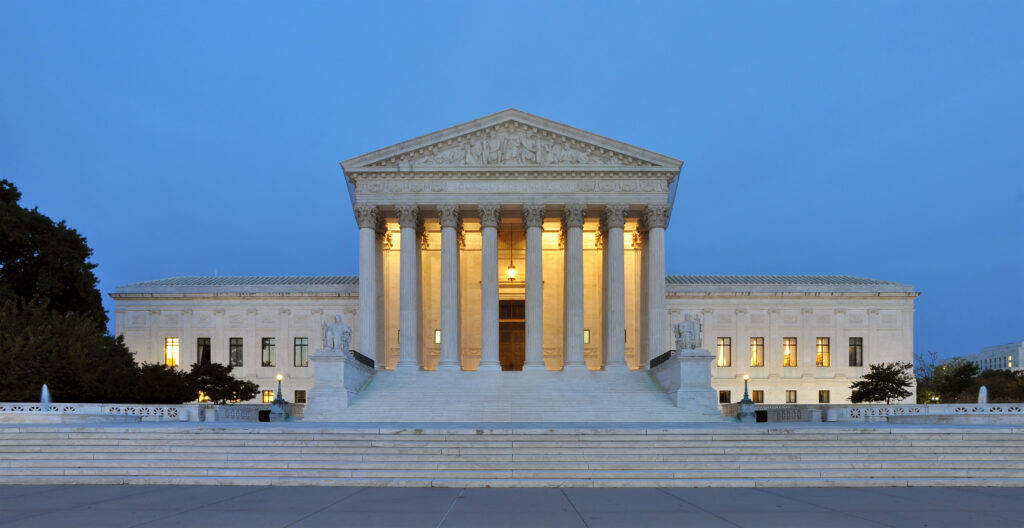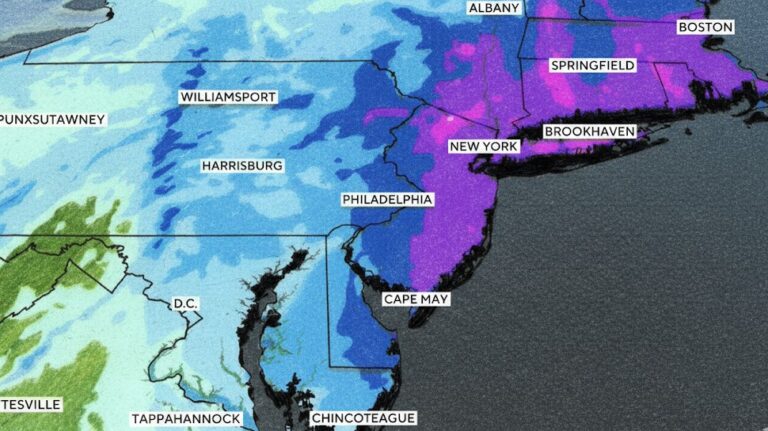Alaska’s Pebble Mine Battle: Court responds
America ı By Rochdi Rais
136 0 Comments

EPA's Section 404(c) Authority Strikes a Blow
Alaska's plea to the Supreme Court sought a review of the EPA's 2023 decision, which utilized its authority under Section 404(c) of the Clean Water Act. The EPA's action not only prohibited waste discharges at the proposed Pebble Mine site but also imposed stringent restrictions in the surrounding area, effectively derailing the project's progress.A Mine of Controversy: Pebble LP's Ambitions
Pebble LP's vision for a copper, gold, and molybdenum mine in the heart of Alaska's pristine wilderness has been marred by fierce opposition. Advocates argue that the mine promises economic growth and job opportunities, positioning the U.S. as a self-reliant player in resource mining. However, Native American groups and environmental activists contend that the project poses an imminent threat to the region's natural habitat and cultural heritage.EPA Champions Environmental Protection
In justifying its intervention, the EPA emphasized the need to safeguard the diverse ecosystem and wildlife that have sustained Native communities for centuries. Additionally, the agency asserted that its measures were crucial to protecting the thriving commercial and sport fisheries, particularly for salmon, in the Bristol Bay area.Legal Chess: EPA's Move Stymies Pebble's Plans
Pebble had been navigating the bureaucratic landscape, seeking a Clean Water Act permit from the U.S. Army Corps of Engineers. However, the Corps' rejection of Pebble's application in November 2020 dealt a significant blow. Despite filing an appeal, the EPA's subsequent actions effectively blocked any potential progress by precluding a Corps permit.Alaska's Dilemma: Legal Complexities Unfold
In a bold legal move, Alaska sought relief from the Supreme Court, arguing that litigating the EPA's decision in lower courts posed considerable challenges. The state faced the daunting choice of pursuing a breach of contract or unjust taking claim in federal court or seeking monetary relief in the Court of Federal Claims. Alaska proposed that the Supreme Court exercise its "original" jurisdiction to order the EPA to reconsider or compensate for its veto.Federal Resistance and a Battle of Jurisdiction
The federal government opposed the Supreme Court's involvement, asserting that Congress intentionally designed Alaska's options in federal court. The government contended that the likelihood of Alaska being forced to choose between claims was minimal. It argued that Alaska's dispute belonged in lower courts, labeling it as routine business rather than a matter warranting the Supreme Court's direct adjudication.Legal Titans Clash: Representations and Outlook
The EPA is staunchly defended by legal heavyweights including Elizabeth B. Prelogar and Todd Kim of the U.S. Department of Justice. Alaska's case is championed by Treg Taylor and Ronald W. Opsahl of the Alaska Department of Law, along with J. Michael Connolly, Gilbert C. Dickey, and Steven C. Begakis of Consovoy McCarthy PLLC.Rochdi Rais
Rochdi Rais is the chief content officer and financial and legal writer at USA Herald. He has been writing about finance, law, cryptocurrency and U.S. politics for years with over +4000 articles published during his career.
FOLLOW US
Recent Posts
Kelly Warner Law Firm Blames USA Herald for Arizona Bar…
Aaron Kelly Law Firm Resorts To Attacking Former Client Again…
Arizona Bar Opens Investigation on Attorney Aaron Kelly
Trump Fires Kristi Noem in Surprise Cabinet Shake-Up
Cable Trade Group Challenges Copyright Office Rule Over Retransmission Royalty…
Gamers Revamp $7.85M PlayStation Antitrust Deal In Third Push For…
Backlash Builds As OpenAI Signs US Military Deal, Fueling ‘Cancel…
Florida Court Asked To Enforce $5M London Arbitration Award In…
Small Wine Importer Wins Supreme Court Fight Against Trump’s Tariffs…
Iran Leadership Agrees to Talks After Strikes Rock Tehran
Don’t Miss It
Kelly Warner Law Firm Blames USA Herald for Arizona Bar Investigation
By – USA HeraldAaron Kelly Law Firm Resorts To Attacking Former Client Again On KellyWarnerLaw.com – Pattern Recognized
By – Jeff WattersonArizona Bar Opens Investigation on Attorney Aaron Kelly
By – Paul O'NealTrump Fires Kristi Noem in Surprise Cabinet Shake-Up
By – Rihem AkkoucheCable Trade Group Challenges Copyright Office Rule Over Retransmission Royalty Calculations
By – Tyler BrooksGamers Revamp $7.85M PlayStation Antitrust Deal In Third Push For Court Approval
By – Ahmed BoughallebBacklash Builds As OpenAI Signs US Military Deal, Fueling ‘Cancel ChatGPT’ Movement
By – Tyler BrooksFlorida Court Asked To Enforce $5M London Arbitration Award In Fintech Loan Dispute
By – Ahmed BoughallebSmall Wine Importer Wins Supreme Court Fight Against Trump’s Tariffs — What This Means for Other Businesses
By – Rochdi RaisIran Leadership Agrees to Talks After Strikes Rock Tehran
By – Rachel MooreNew Forensic Analysis Reopens Questions About 3I/ATLAS X-Ray Signature
By – Samuel LopezAlso on usaherald-com
Kelly Warner Law Firm Blames USA Herald for Arizona Bar Investigation
In what appears as a desperate attempt to defend multiple allegations of fraud on the courts, the Kelly Warner Law…
By – USA HeraldAaron Kelly Law Firm Resorts To Attacking Former Client Again On KellyWarnerLaw.com – Pattern Recognized
Attorney Aaron Kelly and his law partner Daniel Warner are currently under investigation by the Arizona Bar for legal misconduct.…
By – Jeff WattersonArizona Bar Opens Investigation on Attorney Aaron Kelly
USA Herald recently reported on a developing story involving Attorneys Daniel Warner and Aaron Kelly. Both Warner and Kelly have…
By – Paul O'NealTrump Fires Kristi Noem in Surprise Cabinet Shake-Up
In a dramatic political shake-up that rippled through Washington on Thursday, President Donald Trump dismissed Homeland Security Secretary Kristi Noem,…
By – Rihem AkkoucheCable Trade Group Challenges Copyright Office Rule Over Retransmission Royalty Calculations
The cable industry’s leading lobbying organization has filed suit in federal court in Washington, D.C., accusing the U.S. Copyright Office…
By – Tyler BrooksGamers Revamp $7.85M PlayStation Antitrust Deal In Third Push For Court Approval
Gamers pursuing antitrust claims against Sony Interactive Entertainment LLC have made a third attempt to secure preliminary approval of a…
By – Ahmed BoughallebBacklash Builds As OpenAI Signs US Military Deal, Fueling ‘Cancel ChatGPT’ Movement
OpenAI is facing mounting criticism after confirming a partnership with the U.S. Department of War, a move that has triggered…
By – Tyler BrooksFlorida Court Asked To Enforce $5M London Arbitration Award In Fintech Loan Dispute
A Finstar Financial Group affiliate is seeking to enforce a multimillion-dollar London arbitration award in federal court in Florida, targeting…
By – Ahmed BoughallebSmall Wine Importer Wins Supreme Court Fight Against Trump’s Tariffs — What This Means for Other Businesses
In early 2025, the Liberty Justice Center reached out to Victor Schwartz, a New York City wine importer, with an…
By – Rochdi RaisTrump Fires Kristi Noem in Surprise Cabinet Shake-Up
In a dramatic political shake-up that rippled through Washington on Thursday, President Donald Trump dismissed Homeland Security Secretary Kristi Noem,…
By – Rihem AkkoucheCable Trade Group Challenges Copyright Office Rule Over Retransmission Royalty Calculations
The cable industry’s leading lobbying organization has filed suit in federal court in Washington, D.C., accusing the U.S. Copyright Office…
By – Tyler BrooksGamers Revamp $7.85M PlayStation Antitrust Deal In Third Push For Court Approval
Gamers pursuing antitrust claims against Sony Interactive Entertainment LLC have made a third attempt to secure preliminary approval of a…
By – Ahmed BoughallebBacklash Builds As OpenAI Signs US Military Deal, Fueling ‘Cancel ChatGPT’ Movement
OpenAI is facing mounting criticism after confirming a partnership with the U.S. Department of War, a move that has triggered…
By – Tyler BrooksFlorida Court Asked To Enforce $5M London Arbitration Award In Fintech Loan Dispute
A Finstar Financial Group affiliate is seeking to enforce a multimillion-dollar London arbitration award in federal court in Florida, targeting…
By – Ahmed BoughallebIran Leadership Agrees to Talks After Strikes Rock Tehran
In a dramatic turn following sweeping military strikes, Iran leadership agrees to talks, President Donald Trump said Sunday, signaling a…
By – Rachel MooreTrump Fires Kristi Noem in Surprise Cabinet Shake-Up
In a dramatic political shake-up that rippled through Washington on Thursday, President Donald Trump dismissed Homeland Security Secretary Kristi Noem,…
By – Rihem AkkoucheCable Trade Group Challenges Copyright Office Rule Over Retransmission Royalty Calculations
The cable industry’s leading lobbying organization has filed suit in federal court in Washington, D.C., accusing the U.S. Copyright Office…
By – Tyler BrooksGamers Revamp $7.85M PlayStation Antitrust Deal In Third Push For Court Approval
Gamers pursuing antitrust claims against Sony Interactive Entertainment LLC have made a third attempt to secure preliminary approval of a…
By – Ahmed BoughallebBacklash Builds As OpenAI Signs US Military Deal, Fueling ‘Cancel ChatGPT’ Movement
OpenAI is facing mounting criticism after confirming a partnership with the U.S. Department of War, a move that has triggered…
By – Tyler BrooksFlorida Court Asked To Enforce $5M London Arbitration Award In Fintech Loan Dispute
A Finstar Financial Group affiliate is seeking to enforce a multimillion-dollar London arbitration award in federal court in Florida, targeting…
By – Ahmed BoughallebIran Leadership Agrees to Talks After Strikes Rock Tehran
In a dramatic turn following sweeping military strikes, Iran leadership agrees to talks, President Donald Trump said Sunday, signaling a…
By – Rachel MooreNASA Pushes Lunar Return to 2028 Amid Artemis Program Timeline Revision
The plan to return humans to the Moon under the National Aeronautics and Space Administration (NASA) has been revised, pushing…
By – Ahmed BoughallebU.S. And Israel Launch Major Strikes On Iran — What It Means For America
TEHRAN, Iran – In a dramatic escalation of global tensions, the United States and Israel launched coordinated military strikes against Iran…
By – Samuel LopezU.S. Court of Appeals for the Ninth Circuit Overturns $8M Asbestos Verdict Against BNSF Railway Co.
The U.S. Court of Appeals for the Ninth Circuit has thrown out an $8 million jury verdict against BNSF Railway…
By – Tyler BrooksMissing DNA Evidence May Limit Investigation Into Nancy Guthrie Case, Sources Suggest
Investigators examining DNA recovered from the home of Nancy Guthrie are uncertain whether the biological material will provide enough information…
By – Ahmed BoughallebGrand Theft Auto 6 Targets November 2026 Launch as Price Leak Fuels $100 Debate
After years of speculation, teaser trailers and headline-making leaks, Grand Theft Auto VI now has a confirmed global release date:…
By – Ahmed Boughalleb40 Million Under Blizzard Warnings as Major Winter Storm Threatens U.S. East Coast
More than 40 million people are under blizzard warnings as a powerful winter storm moves across the eastern United States,…
By – Tyler BrooksTrump Fires Kristi Noem in Surprise Cabinet Shake-Up
In a dramatic political shake-up that rippled through Washington on Thursday, President Donald Trump dismissed Homeland Security Secretary Kristi Noem,…
By – Rihem AkkoucheCable Trade Group Challenges Copyright Office Rule Over Retransmission Royalty Calculations
The cable industry’s leading lobbying organization has filed suit in federal court in Washington, D.C., accusing the U.S. Copyright Office…
By – Tyler BrooksBacklash Builds As OpenAI Signs US Military Deal, Fueling ‘Cancel ChatGPT’ Movement
OpenAI is facing mounting criticism after confirming a partnership with the U.S. Department of War, a move that has triggered…
By – Tyler BrooksFlorida Court Asked To Enforce $5M London Arbitration Award In Fintech Loan Dispute
A Finstar Financial Group affiliate is seeking to enforce a multimillion-dollar London arbitration award in federal court in Florida, targeting…
By – Ahmed BoughallebSmall Wine Importer Wins Supreme Court Fight Against Trump’s Tariffs — What This Means for Other Businesses
In early 2025, the Liberty Justice Center reached out to Victor Schwartz, a New York City wine importer, with an…
By – Rochdi RaisIran Leadership Agrees to Talks After Strikes Rock Tehran
In a dramatic turn following sweeping military strikes, Iran leadership agrees to talks, President Donald Trump said Sunday, signaling a…
By – Rachel MooreFDA Announces Recall of Rhino Choco VIP 10X Supplement After Undeclared Erectile Dysfunction Drug Found in Chocolate Product
Federal health authorities have announced a nationwide recall of a chocolate-based male enhancement supplement after laboratory testing revealed it contains…
By – Ahmed BoughallebWhen The Files Are Finally Unsealed The Most Mind-Bending Truth May Not Be What We Expect
[USA HERALD] – There is a widespread assumption that if governments release their most highly classified files related to unidentified…
By – Samuel LopezCivil Rights Icon Rev. Jesse Jackson Dies at 84 As President Trump Issues Personal Tribute
[USA HERALD] — The Rev. Jesse Jackson, a towering figure of the American civil rights movement whose career spanned more than…
By – Samuel LopezClues to Savannah Guthrie Missing Mom’s Disappearance Found on Security System
The disappearance of the mother of Savannah Guthrie has taken a dramatic turn as investigators focus on digital clues tied…
By – Jackie AllenMike Tyson Urges Americans to ‘Eat Real Food’ in Emotional Super Bowl Ad Highlighting Health Risks
Boxing legend Mike Tyson is using his platform ahead of Super Bowl 60 to address a personal and national health…
By – Tyler BrooksDeadly “Death Cap” Mushrooms in California Cause Multiple Deaths and Liver Transplants Amid Rare Super Bloom
California health officials are warning the public after four deaths and three liver transplants linked to the highly toxic death…
By – Ahmed BoughallebCadillac Names Inaugural Formula 1 Car MAC-26 in Tribute to Mario Andretti Ahead of 2026 Australian Grand Prix Debut
Cadillac has officially revealed the name of its first Formula 1 challenger, confirming that its 2026 car will be called…
By – Ahmed BoughallebNorway Tops Medal Table After Day 13 at 2026 Winter Olympics as Team USA Surges Into Second Place
With 13 days complete at the 2026 Milan Cortina Winter Olympics, Norway sits atop the overall medal standings, collecting 34…
By – Ahmed BoughallebOlympic Science Explained: How Figure Skaters Spin at Blinding Speeds Without Getting Dizzy
When Amber Glenn finishes her routine, the arena usually rises with her. The music builds, her blades carve a tight…
By – Tyler BrooksOlympic Villages Run Out of Condoms at 2026 Milan-Cortina Games
Condom supplies in the Olympic Villages at the 2026 Winter Games have been temporarily depleted, the Milan-Cortina organizing committee confirmed,…
By – Tyler BrooksArizona Authorities Escalate Search for Savannah Guthrie’s Mom to a Criminal Investigation
In Arizona, police are intensifying their investigation into the disappearance of Nancy Guthrie, Savannah Guthrie’s Mom. The 84-year-old mother of…
By – Jackie AllenWhat is Aegosexuality?
As conversations around sexuality continue to expand, so does the language we use to describe it. Sexuality terms are gaining…
By – Jackie AllenNo posts found.
No posts found.
 No comments yet. Be the first to comment!
No comments yet. Be the first to comment!








































